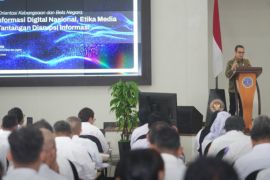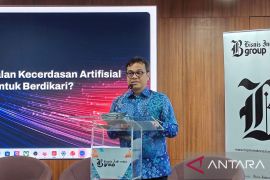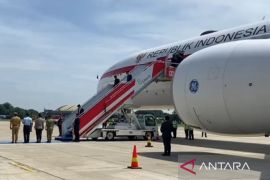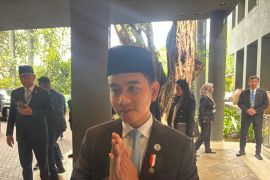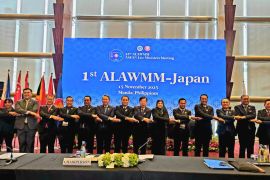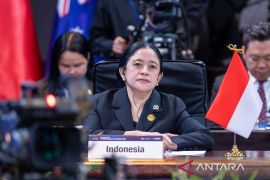The ministry's director general of pharmacy and medical devices, Lucia Rizka Andalusia, said that such devices will be important to carry out health screenings under the Free Health Checks program promoted by the government.
Advanced technology, such as AI, must be utilized in medical devices to provide maximum benefits to the public, she added.
"Our hope is that Indonesia, as a country with a population of more than 280 million, will not only accept AI and machine learning as users, but we will also participate in developing it," Andalusia said here on Wednesday.
She noted that examinations using ultrasound devices equipped with AI are expected to be more accurate compared to manual methods.
She added that the potential of AI in the medical device industry can be developed, first, by integrating the technology with screening products. GE Healthcare recently launched two ultrasound devices equipped with imitation intelligence.
Second, she said, AI can be used as a medical device itself, for example, to read scan results, translate them, and provide results that still need to be validated and curated by humans.
According to Andalusia, this type of AI technology has been widely developed.
She emphasized the significance of screening technology, considering the high number of maternal and infant deaths and breast cancer in Indonesia.
According to data from the Ministry of Health, the maternal mortality rate reached 189 per 100 thousand live births, while infant mortality was recorded at 16.85 per 1,000 live births in 2020.
Meanwhile, Global Cancer Statistics (Globocan) data in 2020 showed that the number of new breast cancer cases reached 68,858, accounting for 16.6 percent of the total 396,914 new cases of cancer in Indonesia. The number of deaths caused by breast cancer crossed 22 thousand.
Currently, she said, people are competing to find the most cost-effective screening method, considering that the number of medical or health human resources has not changed much, while the population is continuing to increase.
Therefore, she invited stakeholders such as academics, for example, from colleges of radiology; industry; as well as related ministries and institutions to help innovate and develop such screening methods.
The ministry is also trying to expand public access to ultrasound services since low access is one of the reasons for the high number of breast cancer cases, as well as maternal and infant deaths.
In addition to providing ultrasound equipment to health centers, the ministry is also training health workers in using and reading ultrasound results.
Related news: Govt outlines five key priorities for AI utilization in Indonesia
Related news: Health Minister seeks to optimize technology in health services
Translator: Mecca Yumna Ning Prisie, Yashinta Difa
Editor: Aditya Eko Sigit Wicaksono
Copyright © ANTARA 2025

